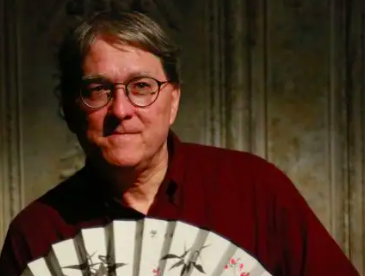

It was the huge differences between Chinese and western culture that attracted David Moser to come to China. Now, he’s been living in Beijing for almost thirty years, during which he witnessed dramatic changes in this city.
David: When I hit Chinese,I've realized this is a very different language world, where the logic of it is totally different. And for me, I guess that was the drive. I'm really interested in cross-cultural things where you see huge differences is very challenging. But then in the 80s was the beginning of the reform and opening up, I think any foreigner who was here at that time, they might not have been able to predict what we're seeing now and what Beijing looks like now. But all of us thought, boy, something is going to happen here. There's so much potential energy here, you know this is the place to watch for the next few decades. We knew it. Everyone could feel it in their bones and I think I want to stick around and see what happens here and that’s what kept me here basically for 3 decades.
(crosstalk1)
The story of David and Beijing began with Chinese crosstalk. As a linguist, he initially took crosstalk only as a way and resource to learn Chinese. But in the process of learning, he became more and more fascinated by this humorous art form, carrying rich and profound cultural connotations. As a result, studying cross talk is no longer a simple academic need but a real interest for him.
David: I was studying crosstalk in Chinese called Xiangsheng, but in crosstalk strictly for my academic curiosity. I was a linguist, and I was interested in language. By the way, back in the Chinese language teaching, the teaching materials in the 80s and 90s were boring and unbelievably tedious. I thought, please give me anything more interesting than this to learn Chinese. So I've discovered this thing called Xiangsheng, crosstalk. I said I would study this. Because this seems people laughing at. This is humor, culture, history, music, opera and all kinds of things. And so I've studied in as an academic. And actually I wrote a master’s thesis on the art form of cross talk.
David has experienced colorful lives and created many amazing memories in China. Speaking about the experience of performing for the Spring Festival Gala, he is very excited, saying the amazing experience is still fresh in his mind.
David: For People don't know I mean, the spring gala festival, especially then was like a ritual. I mean, if you didn't watch it the very night that it was broadcast live, you would certainly watch it the next day the reruns or the overseas Chinese would watch it later on tape. So basically, worldwide you would be watched something like billion times.
Because of the complicated cultural context, some Chinese words are still difficult to understand even with the help of advanced modern translation technology. Thus, David tries to use his knowledge of Chinese culture he had accumulated over the years to engage in translating Chinese into English. By doing so, he is now able to read Chinese handwriting as well as native speakers.
(crosstalk2)
Performing cross talk, teaching Chinese language and translating literary classics, David has already become a bridge connecting China and the West. He perceived the overall picture of China’s social realities and told the world about China's development over the past three decades.
With his enthusiasm for China, David hopes that more and more foreigners could join him to share their feelings and experiences in China, telling their stories about China and introduce Chinese culture to the world.
David: Somebody like me, who can be personally a bridge between Chinese people and western people. I'm finding that I still have a job to do here as someone who has lived here and understands China trying to explain to foreigners what's really happening here instead of what they see on the news media and then vice versa. Chinese think we now are open up to the West, so we know everything. No, they don't. They're in their little media bubbles. I need to pass this on to the next generation, but I think we still need people like me, who know both cultures they are able to talk in both languages to the people who are interested in.